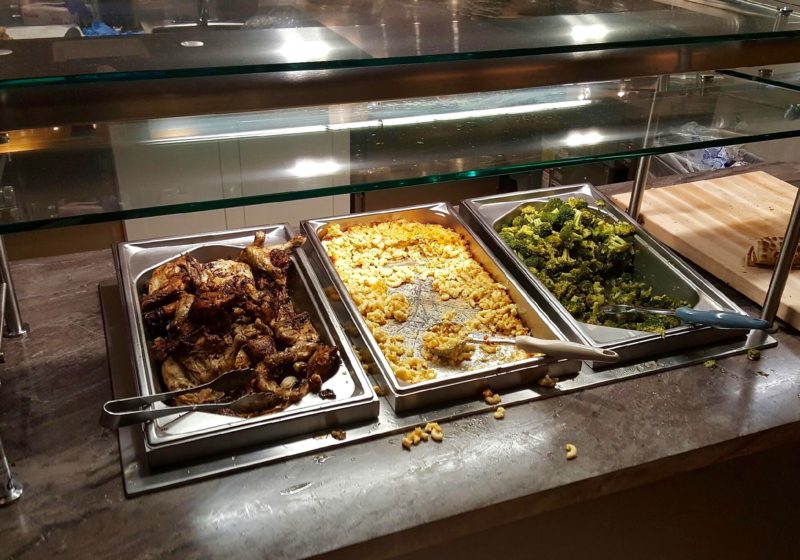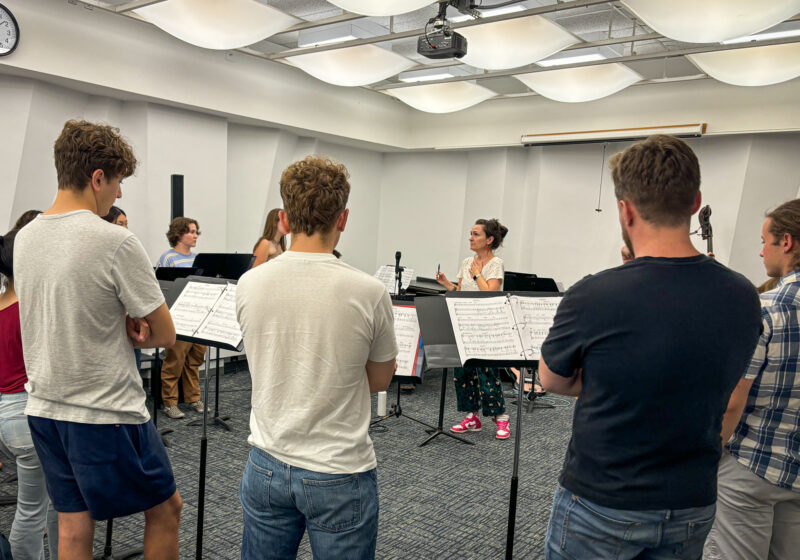The many food stations at the newly renovated Douglass Dining Hall are devoid of nutritional information labels, leaving students with allergies in the dark about their options.
The lack of signage containing nutritional information is a consequence of the dining hall remaining open to students despite its transition being complete.
“Though it is not evident to our customers, there is still quite a bit of work going on behind the scenes in order to keep this location up and running at the level students have come to expect from Dining Services,” Resident District Manager of Dining Services, John Gula said.
“Everything from equipment to infrastructure improvements are still underway and present daily challenges including the need for menu revisions and adjusted service styles,” he added.
Unlike Douglass, Danforth Dining Hall has a printout of the ingredients and allergens posted on the glass covering each station. Douglass, before its renovation, displayed this information, but no longer does. It does, however, currently have an “Allergen Free Station” where food with neither the top eight most common allergens nor gluten is served.
Despite the accommodation, students with severe allergies are concerned.
“I just go to the section that has the allergen free stuff,” said freshman Dean Moore. “It’s only one section and limited, so it would be nice to know all the other ones.”
When asked what prompted a change in the way food labels were displayed in Douglass, Gula said that to “open the new dining center, as promised, at the beginning of the Fall semester” certain sacrifices had to be made.
“One of the most obvious sacrifices has been the digital menu signage, nutritional kiosk, and web menu,” he added.
Until nutritional information is available for each station, which Gula says will be underway shortly, students are encouraged to ask questions or express their concerns to any chef, manager, or supervisor at Douglass. He also suggested that students reach out to the campus nutritionist, Christina Patterson, who is available to address any questions or concerns and help students navigate the challenges associated with food allergies.
“Until this comprehensive solution is in place, we ask students to please be patient and understand that their health and safety is our most important concern,” Gula said.





